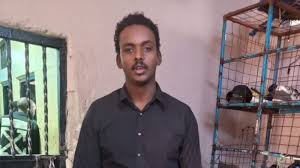Health Cabinet Secretary Mutahi Kagwe yesterday warned Kenyans that there were no miracles in the acquisition of Covid vaccines.
The CS said the nationalisation of the Astrazeneca vaccines by the Indian government has forced 93 countries around the world to look for alternatives elsewhere.
“There are no miracles regarding the AstraZeneca vaccine. We have to live with the current situation as we find alternatives. In any case, we have until July to worry about the second dose,” the CS said.
He, however, assured those who took the first AstraZeneca jab not to worry about any negative effect saying, “your immunity against the disease is more than 60 per cent meaning that if you get the virus you are likely to suffer fewer symptoms. No one will die because they did not get the second dose”.
As a result of the shortage, the government has placed an order of 30 million Johnson and Johnson doses, which will be delivered within a year.
During a meeting by Africa’s health minister last Saturday, Kagwe proposed that all the money raised via the Covax initiative be used to pay for 200 million doses of Pfizer and another 210 doses of the Johnson and Johnson vaccine.
“With this arrangement, Kenya will not pay anything and will be able to easily get and vaccinate 30 million people with Johnson and Johnson which is being manufactured in Africa and will be a single dose.
Vaccination centres gave May dates for the second dose after eight weeks and the government revised that to June to cater for delays in supply. Even that 12-week window is now in doubt.
The AstraZeneca vaccine manufacturer, the Serum Institute of India, has said it can no longer give commitments for supply.
It has begun refunding monies it had received from countries to ship doses.
The suspension of exports has created a shortfall of 90 million doses for Covax, 40 million affected in March and 50 million in April.
Head of vaccines deployment task force Willis Aklwale had said some 2.5 million doses would arrive from India in early June. The earliest supplies might resume in July.
The one million Kenyans who have received their first doses will wait beyond the 12 weeks to receive their final doses.
Scientists still do not know what this means to their immunity.
India has banned all vaccine exports due to its Covid-19 variant that is ravaging the country.
It is importing Sputnik V from Russia and has extended vaccination campaign to people aged 18 years and below.
The suspension of exports has created a major shortfall in doses for Covax, the WHO-backed plan for poor nations that Kenya relies on.
The Serum Institute had promised to supply Covax with one billion doses of the AstraZeneca jab by March. It had only shipped about 30 million doses to Covax when it halted supplies.
Kenya received 1.02 million doses under the Covax facility in March, and an extra 100,000 doses from the Indian government.
“Our hope is now receiving part of the 60 million stockpiles of the AstraZeneca vaccine doses in the United States,” a member of the vaccines’ deployment task force told the Star on Tuesday.
The US stockpile is awaiting checks from the US Food and Drug Administration before the doses are exported to the beneficiary countries.
Health CS Mutahi Kagwe said last week that they had “reached out to the highest levels of the US government” for doses.























































